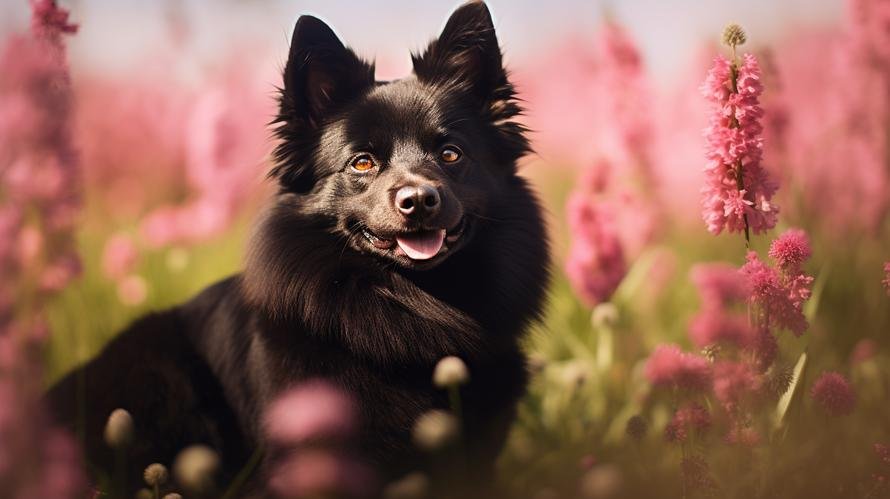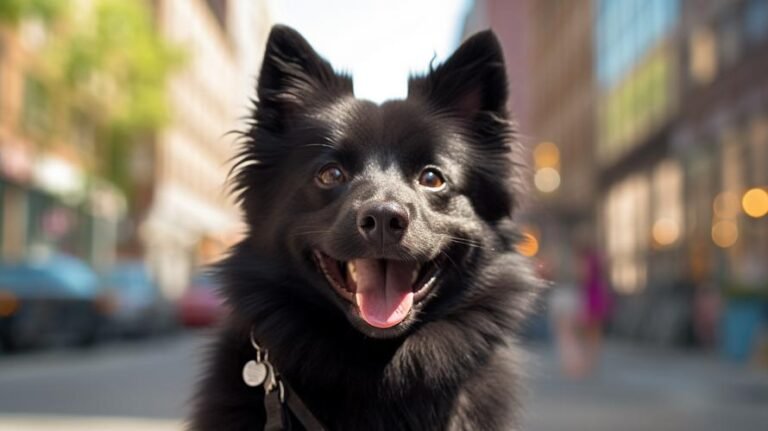Imagine you are walking down the street and suddenly, you spot a small, fox-like dog, barking loudly at a passerby. It’s a Schipperke, a breed that seems to have punched way above its weight class in terms of noise and drama! Originating in Belgium, and often referred to as “little black devils” owing to their mischievous nature and coal-black coat, the Schipperke can often surprise with its fiery personality. But, is this loud, lively breed a danger to those around it? Let’s delve into the world of Schipperkes to find out.
To answer the question, “Is a Schipperke a dangerous dog?” is not as simple as a straightforward yes or no. It’s important to understand the breed’s temperament, behavior, and typical characteristics to make an informed assessment of whether or not a Schipperke is dangerous.
The Schipperke breed is known for its spirited and fearless nature. Often described as ‘big dogs in small bodies’, they don’t shy away from defending their territory or their loved ones. A Schipperke is confident, curious, and quick to sound the alarm when they see something not quite right. This may include barking at strangers, other animals, or strange sounds. This behavior, coupled with their keen senses and alertness, makes them excellent watchdogs.
By instinct, Schipperkes are herding dogs, bred to manage flocks and guard barges in their homeland of Belgium. Their temperament is heavily influenced by these herding instincts which means they need plenty of physical and mental stimulation to prevent them from being bored and consequently, unruly. Without adequate activity, Schipperkes have been known to become destructive, resorting to chewing, digging, and excessive barking.
Schipperkes, like many smaller dog breeds, can sometimes exhibit a syndrome that’s informally known as “small dog syndrome”. This refers to a variety of behaviors displayed by small dogs, including excessive barking, acting aggressively towards other dogs or people, and attempting to dominate others, humans and dogs alike. However, it’s important to note that this behavior is influenced more by the dog’s individual personality, training, and socialization than by its breed.
So, does all this make the Schipperke dangerous? The majority of Schipperke owners would firmly say “no!” Schipperkes are fiercely loyal and dedicated to their families. They classically get along well with adults and children, when properly socialized and trained in their puppyhood. While they do have a strong personality and a big bark, they are generally not considered dangerous. Like every breed, they can develop aggressive tendencies without appropriate training, but inherently, they are not aggressive dogs.
That’s not to say owning a Schipperke doesn’t come with its own challenges. Training a Schipperke can be a bit of a rollercoaster ride thanks to their stubborn, independent nature. They are intelligent and quick learners, but they also have a streak of mischief. Consistent, positive, reward-based training from puppyhood is vital to ensure your Schipperke grows into a well-mannered adult dog.
Socialization plays equally important role. Schipperkes, as with all dogs, should be well socialized from a young age to expose them to a variety of people, animals, and situations. This helps to ensure that they are comfortable and confident in different environments and can reduce any signs of fear-based aggression or nervous anxiety.
As a potential Schipperke owner, you must also remember that not every Schipperke will be the same. Just like humans, dogs have individual temperaments and personalities. They are influenced by their genetics, upbringing, environment, and experiences. It’s always best to meet a dog firsthand and spend some time getting to know its individual character before deciding to bring it into your home.
Understanding the Schipperke’s behavior allows us to conclude that, while they can be bold and sometimes mischievous, they are not inherently dangerous dogs. The breed is generally loving, loyal, and protective with a bark that’s bigger than their bite.
A Schipperke, like any breed, needs a responsible and dedicated owner who can provide them with unconditional love, proper training, and adequate socialization. If these needs are met, a Schipperke can be a wonderful addition to the family. And remember, every dog, irrespective of its breed deserves a chance to show its true potential. So, don’t judge a Schipperke by its bark!



